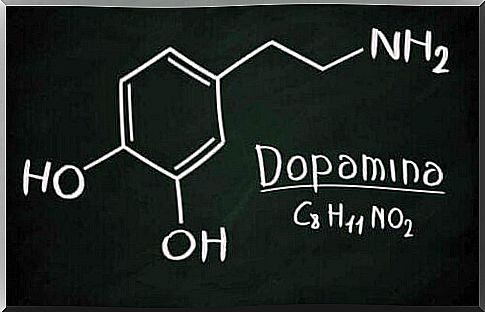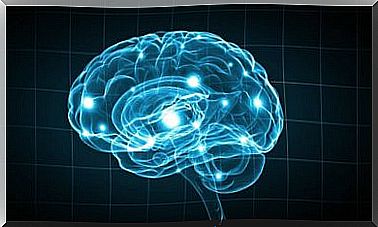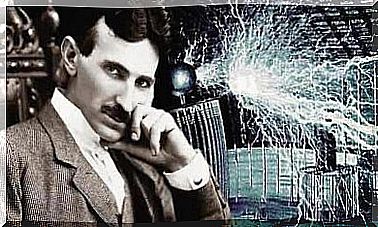What Is Neuroleptic Malignant Syndrome And Why Does It Develop?

Neuroleptics are used more and more. Not only to treat psychotic disorders, but also as part of the treatment of mood or personality disorders. One of the side effects they can cause is neuroleptic malignant syndrome.
Although not a very common complication, it is nevertheless very serious and results in death in almost 11.6% of cases. It is characterized by a set of manifestations at the biological level. These can appear suddenly or gradually and therefore require prompt treatment.
What is Neuroleptic Malignant Syndrome?
Neuroleptic malignant syndrome is a serious complication of taking psychotropic drugs. It is a disorder of the central nervous system that can lead to death.
The first case was described in 1960. It was a case attributable to the use of haloperidol. It was first called hypertonic-kinetic syndrome because of its most prominent symptoms.
This syndrome is caused by agents which modify the neurotransmission of the dopaminergic system. It is usually combined with neuroleptics or antipsychotics. However, it can also occur with other drugs. Sometimes even when stopping certain medications.

Neuroleptic malignant syndrome is usually more common when taking conventional antipsychotics. For example, butyrophenone or phenothiazine. Newer antipsychotics, called atypical, reduce the likelihood of this syndrome occurring. Neuroleptic malignant syndrome can manifest itself in different situations. For example, when:
- The establishment of treatment with antipsychotics: this is the most common case
- The combination of several antipsychotics
- Increasing the dose of antipsychotics
- Sudden suspension of dopaminergic agents such as levodopa
In any case, it is characterized by great clinical variability. This often makes its diagnosis difficult. However, speed of screening is essential to avoid serious complications.
Why does neuroleptic malignant syndrome occur?
There are two theories that try to explain the cause of the appearance of this syndrome:
- The modification of the central neuroregulation of dopamine: this would be produced by the action of antipsychotics and other drugs that have an action on dopamine
- An abnormal reaction of a skeletal muscle having a predisposition to this: neuroleptics would cause a disruption of the normal availability of calcium in the muscle cells of certain sensitive individuals
The first hypothesis is the most widespread. Indeed, dopamine is an essential neurotransmitter. It plays a very important role in pathologies of the central nervous system. It thus plays an essential role in the regulation of temperature and in the control of muscle tone.
The second hypothesis would be linked to malignant hyperthermia, because of its similarities with this syndrome. However, malignant hyperthermia usually occurs after anesthesia. It rarely occurs due to taking neuroleptics.
Symptoms of neuroleptic malignant syndrome
The main characteristic of this syndrome is therefore hyperthermia. As we have seen, this is due to the importance of dopamine in central temperature regulation. It is often accompanied by other symptoms, such as:
- Muscle hypertonicity
- Stiffness and tremors, similar to those produced by Parkinson’s disease
- Disturbances in the level of consciousness
- Cardiovascular and respiratory instability
The most common complications that can result are:
- Bronchoaspiration
- Pulmonary edema
- Kidney failure
- An infectious process
- Scars
- Neuropsychiatric changes

Treatments
For treatment of neuroleptic malignant syndrome to be effective, it must be detected early enough. If there is clinical suspicion, the first step is to immediately stop taking antipsychotics. However, if the cause of the syndrome is the sudden discontinuation of a dopaminergic agent, the associated drug intake should be repeated as soon as possible.
Thereafter, the doctor must choose the treatment to be followed on a case-by-case basis. And this, depending on the severity of the problem:
- In mild cases : Treatment consists of fluid and metabolic support
- In severe cases : Pharmacological agents will be needed. Sometimes even electroconvulsive therapy and intensive care monitoring
Hydration is a major component in the treatment of neuroleptic malignant syndrome. As well as hemodynamic support, the balance of the acid-base state and that of hypoxemia. It is also necessary to monitor the possible appearance of serious complications.
Prescribing medication
In some cases, the administration of drug therapy is necessary. So, doctors usually use the following drugs:
- Dopamine agonists: for example, bromocriptine, amantadine, apomorphine, lisuride, and levodopa-carbidopa
- Muscle relaxants: for example, dantrpolene (also useful in the treatment of malignant hyperthermia)
The drug of choice is usually bromocriptine. In addition, treatment should continue for at least 10 days after the attack has passed. Indeed, the neuroleptic must be completely eliminated. Thereafter, the treatment should be stopped. And this, in a progressive way.
In the most severe cases, the application of electroconvulsive therapy is recommended. This indeed facilitates dopaminergic activity and therefore improves certain symptoms. Finally, this therapy is used when the treatment does not give satisfactory results.
In conclusion
Therefore, the risks and benefits of different treatment options should always be weighed. So the doctor can decide what is best for each patient and each situation. Once this episode has passed, it is necessary to prevent further exposure to the responsible drug.










